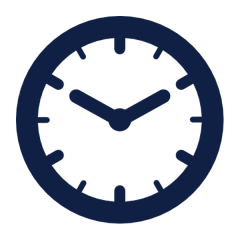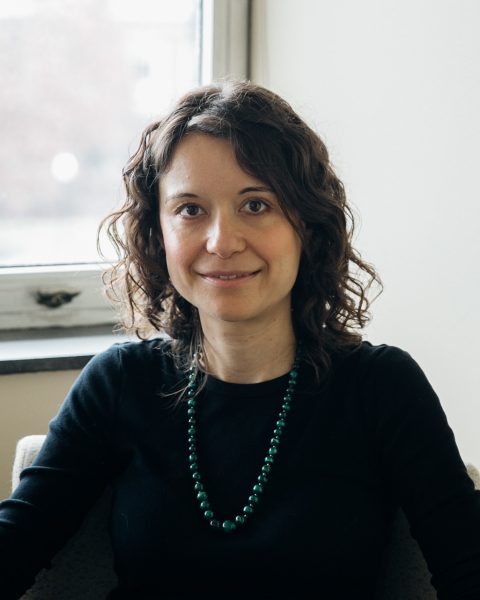PhD in Economics
On Campus and Online OPtions
A focus on policy research
Our innovative Ph.D. program provides you with the advanced theoretical, quantitative, and statistical skills required to perform and interpret economic analyses in a wide range of policy-oriented areas. Graduates of the PhD in Economics program work in a broad range of in-demand fields including economic consulting and research, policy analysis and evaluation, forecasting, data science, risk analysis, and academia.
Our program focuses on producing top-quality policy-oriented researchers through rigorous training in advanced empirical analysis and economic modeling. You will be prepared to perform and interpret cutting-edge economic analyses in a wide range of areas including education, environmental policy, health, labor, public economics, macroeconomics and banking, and technology and innovation.
Learn More

Mentorship
Collaborative research experiences with invested instructors sharing a deep commitment to teaching and scholarship

45-72 Hour Program
Earn a PhD in Economics in as little as three years

Customizable
Select a focus on:
Public, labor, health, environmental economics, economics of technology and entrepreneurship, macroeconomics
Admission Requirements
Admission to the Ph.D. program requires the submission of a completed application including Graduate Record Examination (GRE) test scores and a completed bachelor’s degree with coursework in the following:
- Intermediate microeconomics
- Intermediate macroeconomics
- Regression analysis
- Mathematical economics or equivalent
Students who enter the program with a master’s degree in economics may be eligible to waive up to 15 credit hours, depending on their coursework.
General Program Of Study
| Credit Hours | # of Courses | |
| Core Knowledge* | 0-15 hours | 0-4 |
| Advanced Theory | 9 hours | 3 |
| Empirical Field Courses | 12-18 hours | 4-6 |
| Independent Field Research | 12 hours | 2 |
| Dissertation Research | 12-18 hours | — |
An established legacy of excellence since 1935, the Department of Economics has celebrated more than 80 years of service in education and developing researchers.
Full & Part-time Program Options
We offer full-time and part-time options for completing the PhD in economics program. For those who wish to pursue the program full-time, this program can be completed in as little as three years. For those who would rather pursue the program part-time, we will sit down and work out your plan of study to fit your needs and desires. The time to complete the PhD degree part-time will depend on the specifics of that plan of study, but a common plan results in completion in five or six years.
Check Out Our Program Fact Sheet
Program Costs
| Tuition and Fees | |
| In-State (On Campus) | $24,058 |
| Out-of-State (On Campus) | $66,048 |
| In-State (Online) | $18,640 |
| Outside of NC | $34,765 |
| Out-of-State (Online) | $61,030 |
Estimated program costs are based on completing 45 credit hours calculated by 2021-2022 rates. Costs exclude textbooks and student health insurance. If you would like to view a complete schedule of tuition, fees, meal plans and financial aid opportunities, visit the Spartan Central website.
The Department typically provides tuition waivers to well-qualified doctoral applicants along with a stipend, fellowship, or scholarship to reimburse student fees and the majority of cost of living expenses. Additionally, information on financial assistance is available through the Spartan Central website.
February 1st – Priority deadline
Complete applications submitted by this date are given first priority for admission and for financial support through fellowships, scholarships, and assistantships.
May 15th – Standard deadline
Complete applications submitted by this date will be considered for admission and for financial support after applications that were submitted by February 15 have been evaluated.
2021 Class Profile
50%
Female Students
50%
International Students
50%
Minority Students
4
Average Class Size
3.85
Mean Undergraduate GPA
The Student Experience
Close Collaboration with Faculty
Our PhD students work under the guidance of faculty who conduct nationally and internationally recognized research that promotes economic understanding, policy improvements, and economic development. Whether it is classroom interactions or one-on-one discussions, you’ll find our faculty always have time to support you as you make your way through the PhD program.
Classes at the doctoral level are small, and students benefit from direct and frequent interactions with faculty. Students begin working in applied research early in their programs and are encouraged to work with faculty to identify policy problems they want to investigate through their dissertations. They frequently work with faculty on grant-funded research, and co-author papers with faculty for presentation at regional and national professional meetings.
Students Who Work (and Play) Together
Because our PhD program is small, you’ll also find that it’s easy to get to know your fellow students. PhD work can be a daunting process, but it’s made easier and more rewarding when students work together. We strongly encourage our students to work together, to help each other out, and share in their successes.
Whether it is work in the classroom, as a graduate assistant, or on a dissertation, you’ll find our students accessible and willing to pitch in to help. That help sometimes extends beyond the formal boundaries of the program; sometimes the best thing you can do for someone is to help them relax!
Opportunities to Share Your Work
Part of being an economist is sharing one’s work, getting feedback, and, yes, sometimes engaging in discussions over contentious issues. As a result, we strongly encourage our PhD students to share their work at all stages of the research process. This can take place informally through one-on-one conversations with faculty or fellow students, casual group conversations at the end of the day, or even by exchanging written work and asking for feedback. But formal interactions are also an important part of the world of the economists, so the Department also strongly encourages PhD students to participate in our informal Brown Bag Presentations intended for work still in the early stages and in our more formal Seminar Series where more complete, polished work can be shared.
Recent job placements of our graduates
- Lead Economist, The MITRE Corporation
Washington, DC Area - Assistant Professor, University of Maine
- Lead Data Scientist, ADP
- Senior Research Economist, RTI International
Durham, NC - Lecturer (U.K. AP equivalent), University of Strathclyde
Glasgow, Scotland - Consultant, The Lewin Group
Washington, DC Area - Postdoctoral Research Fellow, Northeastern University
- Economist, Amazon
- Research Fellow, Ankara University
Ankara, Turkey - Economist, U.S. Department of Agriculture
Washington, DC Area
Have Questions?
To learn more about the PhD in Economics program please contact Dr. Dora Gicheva at [email protected].
